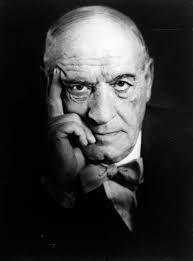Ortega y Gasset, José

Bio: (1883-1955) Spanish philosopher and sociologist. José Ortega y Gasset studied philosophy at the University of Madrid and several German universities. He taught at the University of Madrid, only to leave Spain after the outbreak of the Civil War in 1936. After returning to Spain, after the end of the Second World War, he founded the Institute of Humanities in Madrid, where he also taught. Ortega y Gasset made great contributions to philosophy in the fields of aesthetics, epistemology, metaphysics, and ethics. For sociology, the most important are his studies of the history, politics, and relations between the masses and the elites, and he researched these topics in the books Invertebrate Spain (1921) and The Revolt of the Masses (1932, in Spanish 1930).
At the core of his understanding of the relationship between history and politics is the belief that the division of society into elite and mass is present in every society, and that the dialectical relationship of these two groups has a key impact on political events and historical development. Ortega y Gasset defines members of the elite, not in the context of the political or economic power they have, but according to individual qualities. Members of the elite, that is, selected and excellent people, have a desire for "authenticity", a desire to achieve a higher ideal of living based on the moral principle. In every society, there is a prominent minority, which makes up the elite, and a majority of the society which makes up the mass.
The elite has an innate predisposition to lead society, while the representatives of the masses have an innate predisposition to be led. In the period when the masses refused to be led by the elite, the state and society disintegrate. In Invertebrate Spain, Ortega y Gasset concluded that this was exactly what was happening in Spain at that time. The disintegration of society can also occur when the ruling classes degenerate, that is, they lose their vitality and turn into a mass. He believes that different human races have different proportions of selected and excellent people, so races that have relatively more "elite" people are superior to other races. Similar relations exist between different peoples of one race.
Ortega y Gasset believed that the entire history is characterized by two types of epochs - epochs in which there is a rise and domination of the elite and a period of decline of these elites and the parallel rise and rebellion of the masses against the elite. The changing of these two epochs forms historical cycles. The modern rise of the masses began in the 19th century and is connected with several factors: demographic population growth; increasing social wealth; increasing material security and living standards of all classes; the rise of cities; and the expansion of education. However, the two most important factors are the development and spread of liberal democracy and the rise of technology, understood as the application of scientific methods in industrialization. He also believed that equalizing the quality of life and life chances between different classes, genders, and countries, leads to the rise of the masses.
Political liberalism, in particular, leads to the politicization of the masses and the creation of a dangerous system of "hyperdemocracy" in which the masses are beginning to dominate politics. This kind of hyperdemocracy has led to the rise of systems that are even worse than liberalism - fascism, trade unionism, and Bolshevism. In these systems, the barbarism of the masses and the incompetence of their leaders is most pronounced. The rise of the masses leads to an increase in violence in society, in various forms, from revolutions to direct actions of anarchists, because violence is the only doctrine that the masses have. As a reaction to that violence, the states are carrying out bureaucratization and militarization of life, which is best seen in the huge increase in police forces in all states.
Main works
Meditaciones del Quijote (1914);
España invertebrada (1921);
El tema de nuestro tiempo (1923);
La deshumanización del arte e ideas sobre la novela (1925);
¿ Qué es filosofía? (1928);
La rebelión de las masas (1929);
History as a System (1935);
Teoría de Andalucía y otros ensayos - Guillermo Dilthey y la idea de vida (1942);
La idea de principio en Leibniz (1958).
Works translated into English:
Meditations on Quixote (1963, in Spanish 1914);
Invertebrate Spain (1974, in Spanish 1921);
The Modern Theme (1961, in Spanish 1923);
The Dehumanization of Art and Other Essays on Art, Culture, and Literature (2019, in Spanish 1925);
What is Philosophy (1964, in Spanish 1928);
The Revolt of the Masses (1994, in Spanish 1929);
Meditations on Hunting (2007);
On Love: Aspects of a Single Theme (2012);
Mission of the University (2014);
The Modern Theme (2017).

